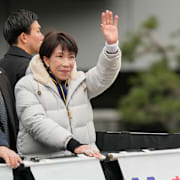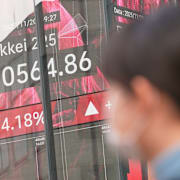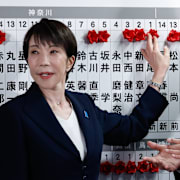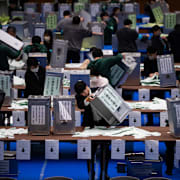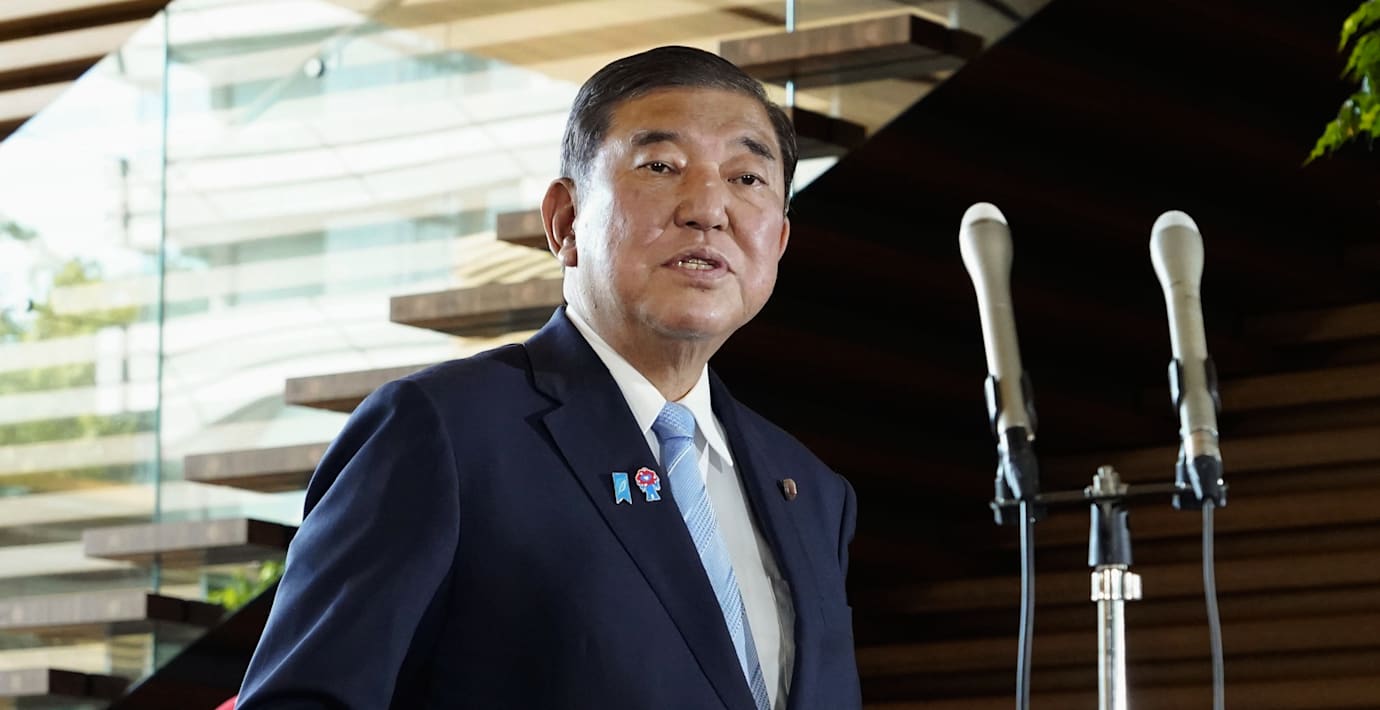
Japans premiärminister avgår efter valfiaskon
Japans premiärminister Shigeru Ishiba avgår. Det avslöjades av japanska medier på söndagen och bekräftades av Ishiba själv på en pressträff några timmar senare.
– Jag har bestämt mig för att avgå som ledare för Liberaldemokratiska partiet, säger han.
Ishiba har suttit vid makten i mindre än ett år. Under det året har LDP lidit två stora valnederlag och tappat majoriteten både i parlamentets överhus och underhus.
Beskedet kommer efter att LDP inlett en process för att hålla ett nytt partiledarval.
bakgrund
Shigeru Ishiba
Wikipedia (en)
Shigeru Ishiba (born 4 February 1957) is a Japanese politician who served as prime minister of Japan and president of the Liberal Democratic Party (LDP) from 2024 to 2025. He has been a member of the House of Representatives since 1986 and served as Minister of Defense from 2007 to 2008 and Minister of Agriculture, Forestry and Fisheries from 2008 to 2009, as well as secretary-general of the LDP from 2012 to 2014.
Ishiba was born into a political family, with his father, Jirō Ishiba, serving as governor of Tottori Prefecture from 1958 to 1974 before later becoming the Minister for Home Affairs. After graduating from Keio University, Ishiba worked at a bank before entering politics after his father's death. Ishiba was elected to the House of Representatives in the 1986 general election as a member of the LDP at the age of 29. As a Diet member, Ishiba specialized in agricultural policy and defense policy. He served as parliamentary vice minister of agriculture under the premiership of Kiichi Miyazawa but left the LDP in 1993 to join the Japan Renewal Party. After transitioning through several parties and returning to the LDP in 1997, Ishiba held various prominent positions, including Director-General of the Defense Agency under the premiership of Junichiro Koizumi, Minister of Defense under the premiership of Yasuo Fukuda and Minister of Agriculture, Forestry and Fisheries under the premiership of Tarō Asō.
Ishiba became a key figure within the LDP, running for party leadership multiple times. First in 2008 where he placed fifth, and notably against Shinzo Abe in the 2012 and 2018 elections. Despite his criticisms of LDP factionalism, he established his own faction, Suigetsukai, in 2015, aiming for leadership. After Abe's second resignation, Ishiba ran in 2020 but placed third behind Yoshihide Suga. Ishiba declined to run and endorsed Taro Kono in the 2021 election which was won by Fumio Kishida. After Kishida announced that he would step down, Ishiba ran for the fifth time in the 2024 election where he defeated Sanae Takaichi in a second round run-off, becoming the new party leader and prime minister–designate, and was formally elected Prime Minister by the National Diet on 1 October 2024. As prime minister, Ishiba almost immediately announced a snap general election, where the ruling LDP coalition lost its majority for the first time since 2009 and suffered its second-worst result in party history. In the National Diet, Ishiba has relied on opposition parties to pass legislation due to his coalition's minority government status. On foreign policy, Ishiba has moved Japan economically closer to China and South Korea amidst protectionist policies being employed by the United States, while continuing to support Ukraine during the Russian invasion that began in 2022. After the LDP-Komeito coalition lost its majority in the House of Councillors after a poor result in the 2025 election, Ishiba initially announced he planned to remain as Prime Minister until tariff negotiations with the United States were completed. After a trade deal between the two nations were announced on 23 July, it was erroneously reported that Ishiba would resign at the end of August. He announced his intention to resign as party president in September 2025.
Ishiba has developed a reputation as a political maverick due to his willingness to criticize his own party, as well as his relatively liberal stances on social issues; he supported a motion of no-confidence against the Miyazawa Cabinet in 1993 and criticized Abe throughout his second premiership, despite serving in the governments of both prime ministers. During his tenure as prime minister however, Ishiba has been criticized for being too hesitant to embrace reform.
On 7 September 2025, Ishiba resigned as prime minister after two parliamentary defeats.
Omni är politiskt obundna och oberoende. Vi strävar efter att ge fler perspektiv på nyheterna. Har du frågor eller synpunkter kring vår rapportering? Kontakta redaktionen
